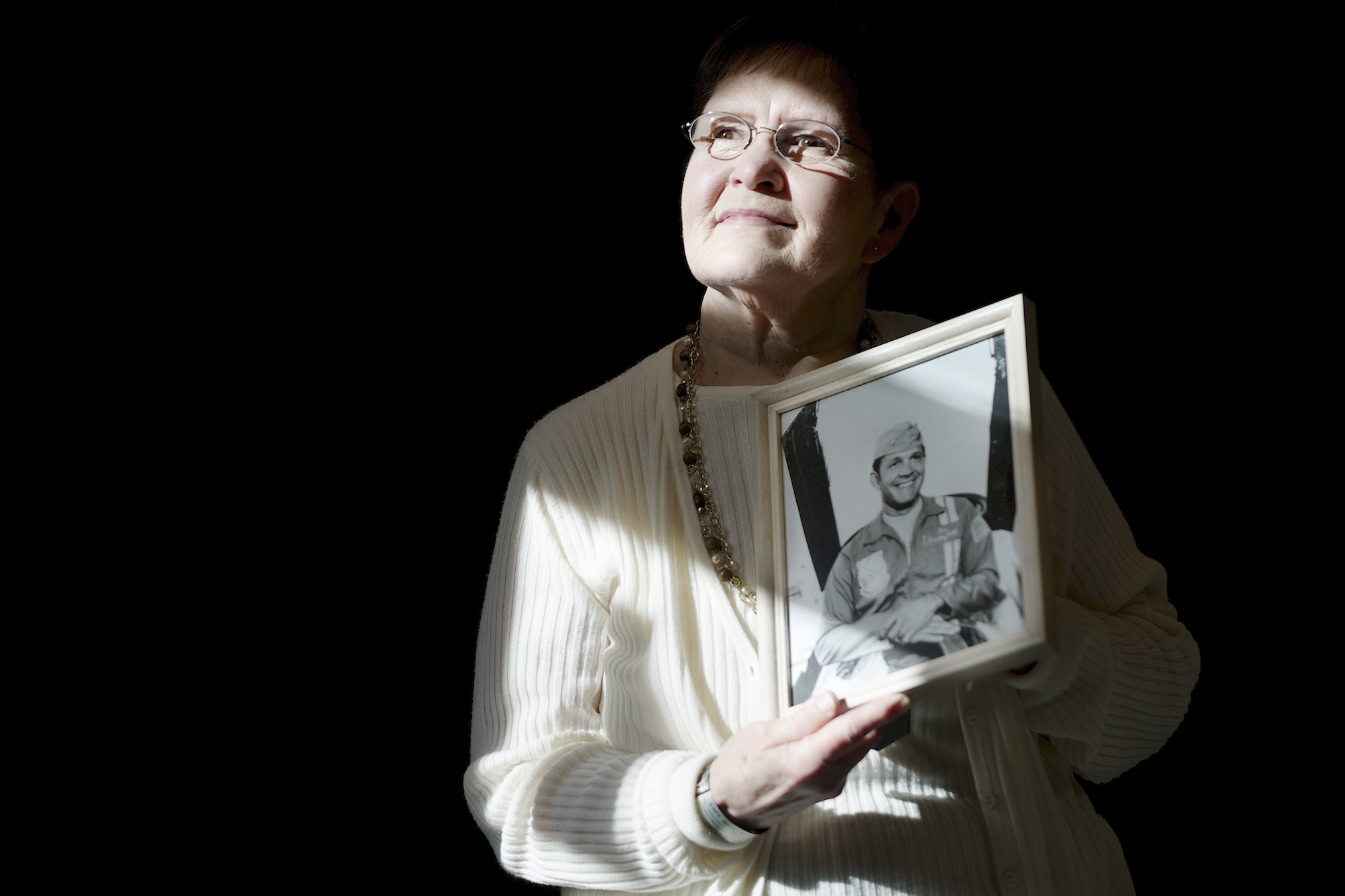Commander Harley H. Hall (Class of 1957) received the Clark College Outstanding Alumni Award posthumously in June 2004.
Forty years ago, U.S. Navy pilots Harley Hall and Ernie Christensen met briefly on the flight deck of the USS Enterprise. They reflected on what would be their final combat mission of the Vietnam War.
“I happen to be the last guy to talk to Harley on the deck, when we launched on the last day,” Christensen said a few days ago.
They were among the cream of America’s fighter pilots; Hall had commanded the Blue Angels flight team for two years. But they had never tested their skills against Soviet-built MiG jets.




